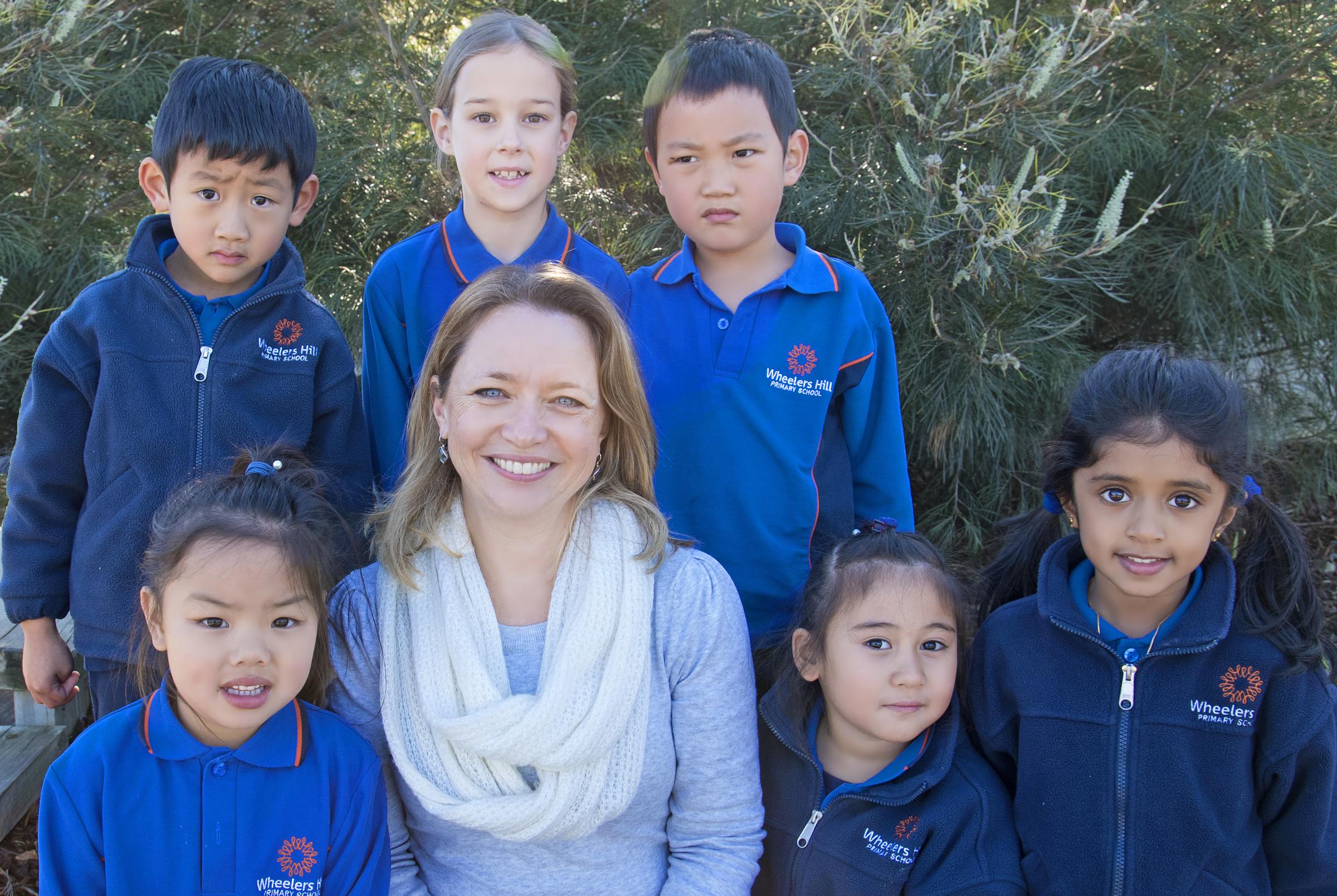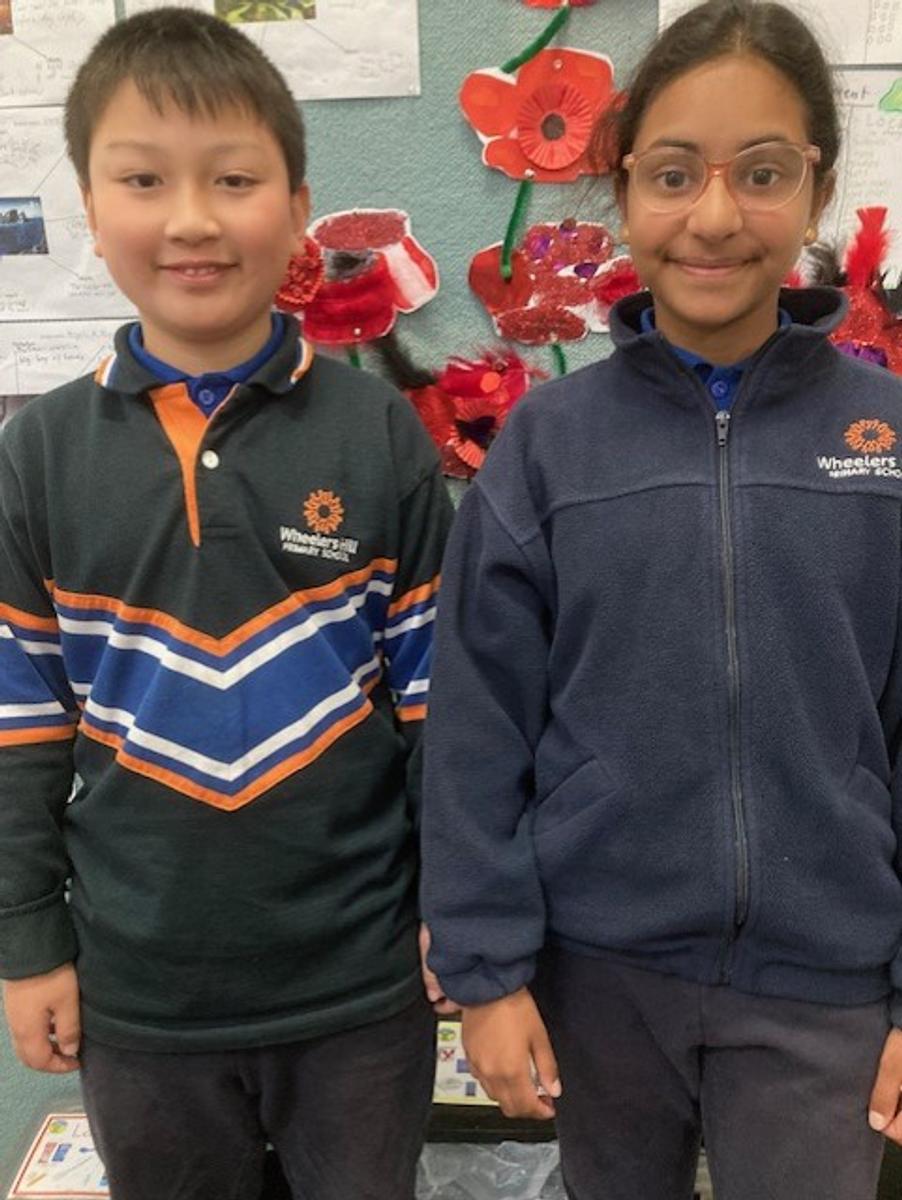Assistant Principal
Katrina Spicer - Wellbeing

Assistant Principal
Katrina Spicer - Wellbeing
REMEMBRANCE DAY
Remembrance Day marks the date in 1918 when the First World War came to an end. It is officially observed at the 11th hour of the 11th day of the 11th month each year. Remembrance Day is held on the anniversary of the Armistice that ended fighting with Germany in WWI. At around 5am on 11 November 1918, the Armistice was signed by representatives of France, Britain and Germany, and six hours later at 11am, the guns fell silent on the Western Front.
To mark this occasion, our French Captains, Ethan and Liana, held a Remembrance Day presentation on Friday, November 10th. All students were asked to stop and listen to the presentation, and to have one minute of silence. We are very proud of the respect shown by our students during the presentation.
Thank you to Ethan and Liana for your excellent presentation.


WORLD CHILDREN'S DAY - NOVEMBER 20th.
Monday, 20th November is International World Children's Day. This year's theme is 'For Every Child, Every Right.'
The following comes from the United Nations website: https://www.un.org/en/observances/world-childrens-day
World Children’s Day was first established in 1954 as Universal Children's Day and is celebrated on 20 November each year to promote international togetherness, awareness among children worldwide, and improving children's welfare.
November 20th is an important date as it is the date in 1959 when the UN General Assembly adopted the Declaration of the Rights of the Child. It is also the date in 1989 when the UN General Assembly adopted the Convention on the Rights of the Child.
Since 1990, World Children's Day also marks the anniversary of the date that the UN General Assembly adopted both the Declaration and the Convention on children's rights.
Mothers and fathers, teachers, nurses and doctors, government leaders and civil society activists, religious and community elders, corporate moguls and media professionals, as well as young people and children themselves, can play an important part in making World Children's Day relevant for their societies, communities and nations.
World Children's Day offers each of us an inspirational entry-point to advocate, promote and celebrate children's rights, translating into dialogues and actions that will build a better world for children.
Katrina Spicer
Assistant Principal for Wellbeing
katrina.spicer@education.vic.gov.au


By Dr Justin Coulson
Bob Ross had a career in the Air Force for 20 years and didn’t start painting until he retired. At 41 he became everyone’s favourite art teacher.
Colonel Sanders had a hard time holding down jobs, working as a fireman, insurance salesman, and even worked in law. It wasn’t until his 40s that he started successfully selling fried chicken.
Martha Stewart worked as a stockbroker. It wasn’t until she was 41 that she published her first cookbook.
Albert Einstein was expelled from his school, and his teachers thought that he was mentally handicapped. Yet he went on to win a Nobel Prize and is considered one of the most brilliant minds of all time.
Winston Churchill failed 6th grade. At 63 he became Prime Minister of England.
It’s so easy to grow anxious, worried that your children are falling behind or missing out.
We worry that they won’t develop their culinary skills if they don’t start Mummy and Me cooking classes as toddlers.
We fear that they will never be talented artists if we don’t enrol them in the pricey after school art class.
We are concerned that if we don’t required them to practice piano daily, that they will never develop into talented musicians.
We worry that their low score on their maths test means that they will never go into a STEM course at university.
We anxiously watch on as they struggle to decide which subject to pursue in high school, worried what careers they are precluding themselves from following.
What we often fail to remember in those moments of anxiety and fear, is that learning doesn’t stop when they finish high school or their tertiary education. As adults we can go back at any time and learn to paint, learn to do complex algebra, learn to be good leaders. We can change career paths again and again, and quickly catch up on the things we missed or have forgotten.
What we can’t do is get our childhoods back.
Childhood isn’t a time to prepare to be an adult.
Childhood is a time to be a child.
Childhood is a special time where imaginative play feels richer, where friendships are formed over a shared love of digging for worms, and where building a tree house can feel like the most important thing in the world.
Yet we often cut into that time to get them to sit still, learn ‘important things’, and prepare for their futures. The problem is that the more time that they are engaged in adult-led, structured, future-oriented activities, the less time they have available to engage in the real work of childhood – play.
Play teacher our kids everything that they really need to learn. It fosters physical and motor development. Play requires socio-emotional skills. It strengthens the imagination and creativity. It builds STEM skills and deductive reasoning. Play can not be substituted with other activities and still achieve the same outcomes. Children need the opportunity to play.
To celebrate World Children’s Day, let’s elevate play to its true level of importance. Let’s prioritise it above our own goals for our children. Let’s allow our kids to have a day, at least just this one day, to choose their own activigies, to play without direction, to engage in the work of childhood without limits.
And if you can, go even further. Start a 30 day play challenge, making sure your kids have at least 45 minutes every day to engage in activities of their own choice. If it’s been a while since they had the opportunity for free play, they might not know where to begin. To avoid those calls of “I’m bored”, try setting the stage with these play prompts:
Then get out of the way. True play is self-directed, intrinsically motivated and creative.
This World Children’s Day (and hopefully every day) let’s safeguard childhood, value play, and let our kids be kids.


Our school subscription to Happy Families allows access to the Happy Families website to all members of our school community.
Families can access the Happy Families website at: https://schools.happyfamilies.com.au/login/whps
Password: happywhps